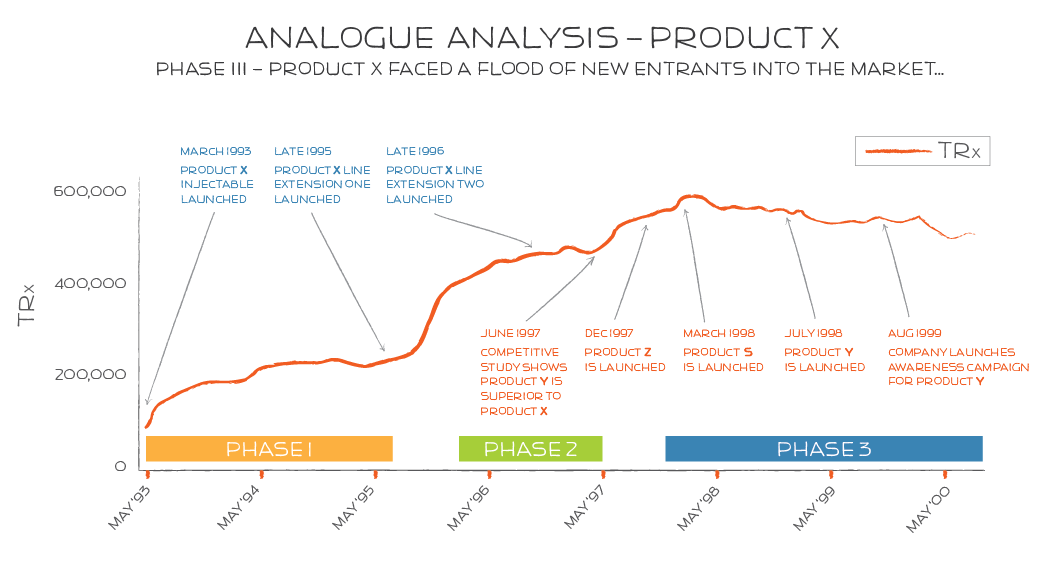Building a Theory About the Future
Analogues can play an important role in forecasting a new product’s market potential in the absence of actual performance history. In a similar vein, analogues can be useful to model the future for almost any business situation a product team faces.
Examples of business questions analogue analyses have answered:
- Assessing products with sustained growth over time
- Mature products that have kickstarted growth late in the lifecycle
- Late-entrant, less superior oncology brands with strong uptake
- Defending against generics with devices
Using Three Critical Characteristics
Three critical characteristics of analogue analyses make them successful tools for forecasting the future. They are transparent, and therefore defendable; objective, built without predetermined expectations; and they are consistent. They do not change over time and should not change when used for multiple product evaluations. Thoughtful attribute selection, to accurately describe true market conditions for the business scenario, is the key to successful analogue analysis.
To Support Business Decisions
Case studies are developed for each analogue providing relevant information to support business decisions.
Relevant background information for each product analogue, e.g. mechanism of action, efficacy, safety profile, order of entry
- Compare competitor analogue’s market data.
- Compare efficacy and safety profile of competitors.
- Compare pricing, promotion, and uptake information
Analysis of performance drivers for the analogues/analogue markets
Assessment of applicability of insights and key market learnings
